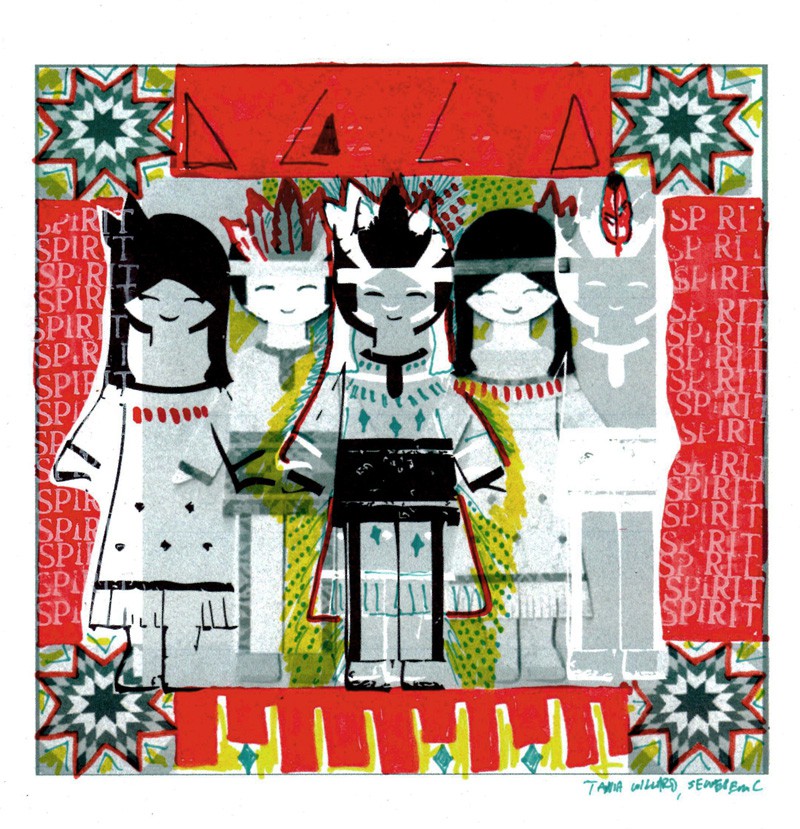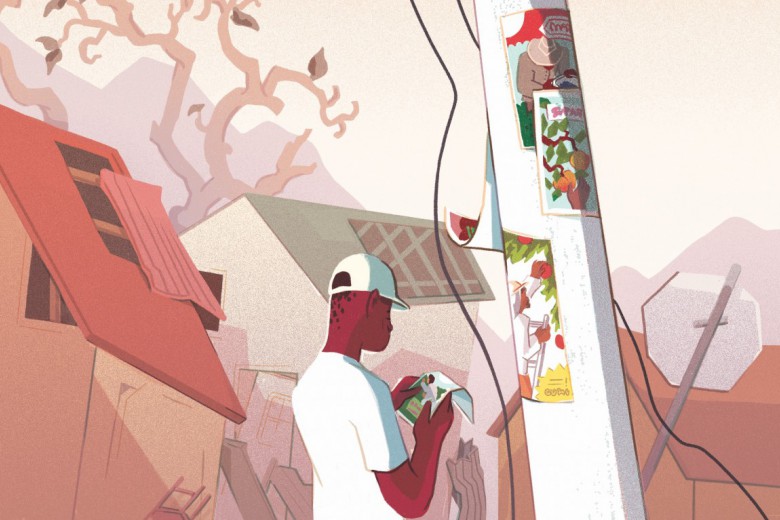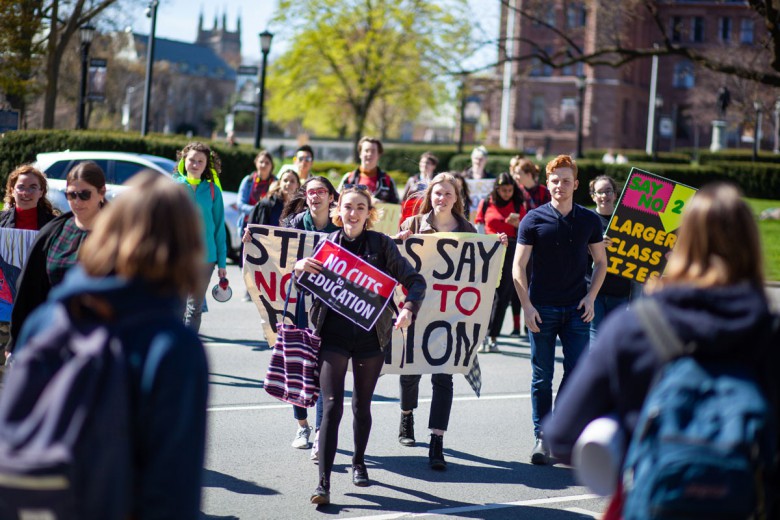
Gender fluidity has traditionally been part of Indigenous culture in every region of the continent. However, the term Two-Spirit, translated from the Ojibwe niizh manidoowag, was not agreed upon until 1990 at the Intertribal First Nations/Native American gay and lesbian gathering in Winnipeg. From this, a movement of gender-variant Indigenous people emerged to honour our ancestors by reclaiming our identities.
Prior to colonization, most Two-Spirited people were respected in their communities and led dignified lives. In some nations, gender variance was understood as a gift: Two-Spirits were considered to have the power of both women and men and were often seers, leaders, healers, mediators, or medicine people.
Many tribes had specific rituals for children who acted in accordance with a gender that differed from the sex they were ascribed at birth. Ceremonies and practices were based on how different genders were manifested, not on sexual preferences. Many Indigenous languages did not even include concepts for sexual orientation. Although there were culture-specific, Two-Spirit gender norms, variation from those norms was often appreciated.
Since European colonization, Two-Spirits have been systematically alienated from their identities. Two-Spirit practices were driven underground, and in some cases eliminated. Despite commonly being mentioned in reports made before 1850, by the mid-1800s, Two-Spirit individuals and traditions seemed to have disappeared from record. This means that before the federal government banned all Aboriginal cultural ceremonies in 1925, and even before the racist and sexist Indian Act was passed in 1876, Two-Spirit ceremonies and identities were already near extermination. Although legislation was used as a colonial tool to further prevent Indigenous peoples from practising traditional healing and spirituality, it was preceded by conversion and forced assimilation to colonial gender norms by missionaries.
Colonizers used gender identity to determine policy, refusing to acknowledge chiefs who were women or Two-Spirits and excluding them from colonial state structures, private ownership, and the wage labour force. Access to power was based on gender, and the colonial system continues to try to silence Indigenous women and those who do not conform to the gender binary.
Two-Spirits are part of a tradition that involves respect. Restoring this in our relations, and resisting colonial impositions of gender and sexuality, is difficult. To address Two-Spirits’ ongoing experiences of transphobia, homophobia, and racial discrimination, it is essential that the decolonization processes of Two-Spirit youth movements undermine racism as well as heterosexism and trans-misogyny. This will not only contribute to the strength of our cultures on reserves but also create spaces that foster strong Indigenous communities in urban centres.
Indigenous peoples often experience marginalization and stigma within settler LGBTQ spaces and other urban communities where respect for Indigenous cultures, languages, and traditions is lacking. Even progressive social movements can be marked by patterns of domination, assimilation, paternalism, charity, or tokenism.
By placing resurgence at the core of our lives, rather than simply reacting to the colonial agenda, Two-Spirits disrupt the colonial landscape. The very existence of Two-Spirits is resistance, and it is further strengthened when we take care of ourselves as well as the spirits of others.
Since we owe our existence to the land, the resurgence of Indigenous thought involves spending time on the land and with Elders. To decolonize LGBTQ centres, it is necessary that the opportunity to do this and to learn original teachings is not only present in but also integral to the structure of the community. It means creating space for spiritual access and promoting informed and holistic understandings of Two-Spiritedness.
Many Indigenous communities now assume colonial notions of rigid, binary gender. With a history of ongoing displacement, it is important that Two-Spirits living on reserve do not feel forced to either give up being part of their community or give up their gender identity to be accepted in their community and included in ceremonies.
Decolonization involves reframing our concepts about Indigenous governance and working to build strong Indigenous nations that honour self-determination, gender variance, and the contributions of Indigenous women, Two-Spirit, and LGBTQ individuals. With the re-creation of Two-Spirit identities and reclamation of traditional roles within our respective communities, the need to withdraw from them dissolves.
In both urban and reserve communities, education, awareness, and dialogue about sexual, cultural, and gender diversity will help prevent the replication of colonial relationships with each other, and with the land. Youth from all over Turtle Island have started doing what they can with what they have to create healthy communities. They are taking the lead in educating themselves and one another about traditional and contemporary Two-Spirit roles by encouraging Two-Spirits themselves to share their experiences.
Two-Spirit youth have an important role in supporting the vision of our people to transcend beyond the gender binary that has violently divided us. We are blessed to have received this vision from our Elders and ancestors. Without the resilience of Two-Spirits before us, the knowledge they carry could not be shared.
We cannot continue to support policies and practices that perpetuate the colonial violence that is destroying the land and our future. Decolonization is vital to our well-being. When we hear the voices of our own spirits, honour Two-Spirits’ gifts, and respect their identities, we may learn how to live more authentically in our ways, in balance with all our relations.






